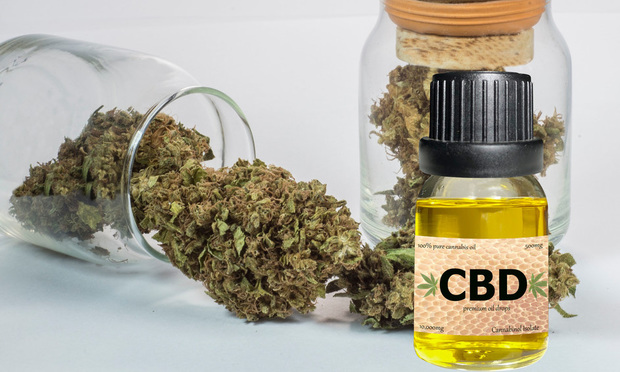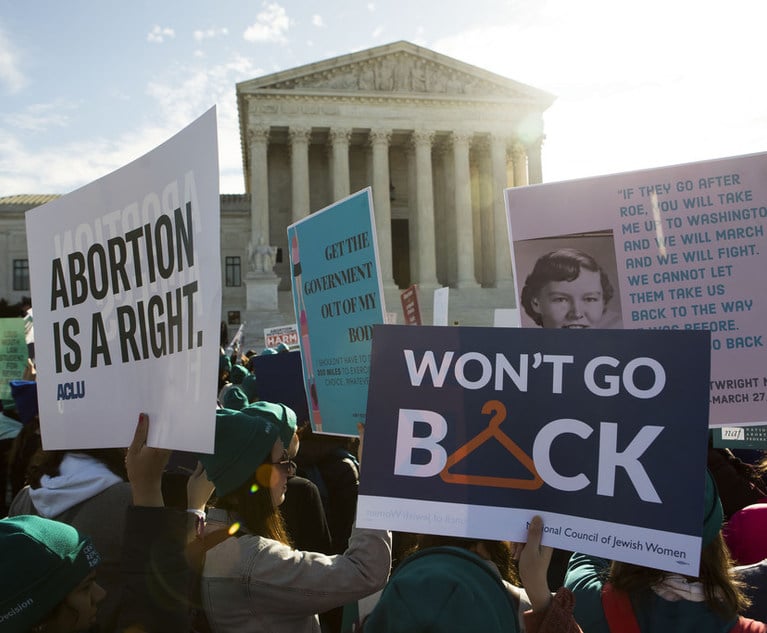New Legislation to Regulate Hemp, Extracts and CBD
The New York State Legislature has passed legislation which, if signed by Governor Cuomo, will establish one of the most comprehensive regulatory frameworks for hemp and hemp extracts in the country and could significantly impact the burgeoning hemp industry in New York by adding new regulatory requirements. This article provides a summary of some of the legislation's more notable (and controversial) provisions.
August 14, 2019 at 11:10 AM
6 minute read
The original version of this story was published on New York Law Journal

Much of the discussion this past legislative session focused on the legalization (or expanded decriminalization) of "adult-use" cannabis. However, one piece of cannabis legislation flew under the radar. A bill establishing a new regulatory framework for one of the state's fastest growing industries successfully navigated its way through both houses of the New York State Legislature. But unlike adult-use cannabis, this type of cannabis will not get you "high." We're talking about hemp, of course, and hemp-derived cannabinoids—the most recognizable of which is cannabidoil or "CBD."
On the final day of New York's legislative session, the Legislature passed bill A7680-A/S6184-A. If signed by Governor Andrew Cuomo, this legislation will establish one of the most comprehensive regulatory frameworks for hemp and hemp extracts in the country. The legislation was introduced this past January as part of Cuomo's proposed budget and sponsored by State Senator Jennifer Metzger (D-42) and Assembly member Donna Lupardo (D-123). As of the date of this article, the legislation has not yet been delivered to the governor for his signature or veto.
If enacted, bill A7680-A / S6184-A could significantly impact the burgeoning hemp industry in New York by adding new regulatory requirements. Here's a summary of some of the legislation's more notable provisions.
License Requirements
First, the legislation requires all cannabinoid growers, manufacturers and extractors to obtain a license through the New York Department of Agriculture and Markets (the department). The legislation also requires a license for any cannabinoid products intended for "human or animal consumption or use," the latter term not being defined. The cannabinoid extractor license is the most comprehensive, permitting the licensee to acquire, possess, manufacture and extract hemp for products intended for human and animal use. Licenses will be renewed on a biennial basis, and licensed premises are subject to random inspection by the department.
Manufacturers and growers will also be required to contract with an independent laboratory approved by the commissioner for routine testing, and all testing reports will need to be made available to the department. Applicants for a license will be required to submit evidence of "good moral character," experience, competency, and if requested by the department, fingerprints of each researcher, principal or officer.
Notably, the department has broad authority to deny licensure, as it has the authority to consider "whether it is in the public interest to grant [the application]."
Similar licensing requirements existed under New York's Industrial Hemp Agricultural Research pilot program previously overseen by the department (the pilot program). Under the pilot program, three licenses were available to a pool of limited research partners: (1) a license for growing industrial hemp; (2) a non-CBD processing license; and (3) a CBD processing license.
The pilot program will continue under the bill, but will be subject to the same regulations as hemp processed for non-research purposes, with minor compliance exceptions.
Permit Requirement for Retailers
One of the most notable provisions imposes a permit requirement on retailers, wholesalers, and manufacturers selling "cannabis products derived from hemp extracts" whereby sellers of such products will be required to apply for a cannabinoid permit. This has far-reaching implications for businesses such as the local gas station, bodega, national pharmacy or retailer. As of this article, there are still open questions as to the potential scope of products covered by this definition, and how onerous the permitting requirements may be. Both issues will presumably be clarified in future regulations by the department.
I Love NY
Some of the more controversial provisions in the legislation relate to the preferential treatment of New York hemp, and barriers to entry for out-of-state hemp. More specifically, the legislation permits the sale of beverages containing no more than 20 milligrams of CBD per 12 ounces of, but only if the hemp extract was grown, extracted and manufactured in the state of New York. This provision in particular has caused some hemp industry groups to claim the legislation is "unconstitutional," and "protectionist," and could be considered the first shots in a "trade war" between states.
Other sections of the legislation specifically prohibit the sale of out-of-state hemp extract intended for human and animal consumption grown, unless the product meets New York standards and regulations to be promulgated in the future. Until regulations are promulgated, this section could be interpreted as prohibiting all out-of-state hemp products.
Labeling
The legislation also amends the Agriculture & Markets Law to establish a framework for the packaging and labeling of hemp extract products. All hemp extracts will have to be labeled in accordance with department standards, include a supplement fact panel where applicable, and must display a QR Code setting forth the applicable serving size, concentration, and growing region of the product. Consistent with guidance and warnings from the U.S. Food and Drug Administration, hemp extract labels cannot claim that hemp treats, cures or prevents any disease.
Workgroup
Finally, the Bill requires the Commissioner to establish a "New York State Industrial Hemp and Hemp Extract Workgroup" made up of researchers, producers, processors, manufacturers and trade associations. The Workgroup is charged with making recommendations for the program, developing state and federal policy initiatives, and discovering new opportunities to promote and market industrial hemp.
Next Steps
While the legislation has passed both houses of the New York State Legislature, it has not yet been delivered to the Governor for his signature or veto. Both supporters and opponents of the legislation have been lobbying for changes to be made to some of the more controversial provisions. Whether these changes are included in chapter amendments or next year's legislative session is yet to be seen.
If signed, New York State will be taking a significant step in the regulation of a rapidly growing industry. And with significant policy decisions deferred to future regulations, the department has a significant role in shaping not only New York's hemp industry, but the nation's. With hundreds of millions of future dollars at stake, New York will continue to be the focus of the hemp and cannabis industry for months to come.
Mitchell Pawluk is a member Harris Beach in the firm's government compliance and investigations practice group and leads the firm's cannabis industry team. Meaghan Lambert is a member of the firm's cannabis industry team.
This content has been archived. It is available through our partners, LexisNexis® and Bloomberg Law.
To view this content, please continue to their sites.
Not a Lexis Subscriber?
Subscribe Now
Not a Bloomberg Law Subscriber?
Subscribe Now
NOT FOR REPRINT
© 2025 ALM Global, LLC, All Rights Reserved. Request academic re-use from www.copyright.com. All other uses, submit a request to [email protected]. For more information visit Asset & Logo Licensing.
You Might Like
View All
South Carolina Physicians Challenge Abortion Ban Under Religious Freedom Claims

7th Circ. Revives Transactional Dispute Against Military Retailer, Sends to State Court
4 minute read

DOJ, 10 State AGs File Amended Antitrust Complaint Against RealPage and Big Landlords
4 minute readTrending Stories
Who Got The Work
J. Brugh Lower of Gibbons has entered an appearance for industrial equipment supplier Devco Corporation in a pending trademark infringement lawsuit. The suit, accusing the defendant of selling knock-off Graco products, was filed Dec. 18 in New Jersey District Court by Rivkin Radler on behalf of Graco Inc. and Graco Minnesota. The case, assigned to U.S. District Judge Zahid N. Quraishi, is 3:24-cv-11294, Graco Inc. et al v. Devco Corporation.
Who Got The Work
Rebecca Maller-Stein and Kent A. Yalowitz of Arnold & Porter Kaye Scholer have entered their appearances for Hanaco Venture Capital and its executives, Lior Prosor and David Frankel, in a pending securities lawsuit. The action, filed on Dec. 24 in New York Southern District Court by Zell, Aron & Co. on behalf of Goldeneye Advisors, accuses the defendants of negligently and fraudulently managing the plaintiff's $1 million investment. The case, assigned to U.S. District Judge Vernon S. Broderick, is 1:24-cv-09918, Goldeneye Advisors, LLC v. Hanaco Venture Capital, Ltd. et al.
Who Got The Work
Attorneys from A&O Shearman has stepped in as defense counsel for Toronto-Dominion Bank and other defendants in a pending securities class action. The suit, filed Dec. 11 in New York Southern District Court by Bleichmar Fonti & Auld, accuses the defendants of concealing the bank's 'pervasive' deficiencies in regards to its compliance with the Bank Secrecy Act and the quality of its anti-money laundering controls. The case, assigned to U.S. District Judge Arun Subramanian, is 1:24-cv-09445, Gonzalez v. The Toronto-Dominion Bank et al.
Who Got The Work
Crown Castle International, a Pennsylvania company providing shared communications infrastructure, has turned to Luke D. Wolf of Gordon Rees Scully Mansukhani to fend off a pending breach-of-contract lawsuit. The court action, filed Nov. 25 in Michigan Eastern District Court by Hooper Hathaway PC on behalf of The Town Residences LLC, accuses Crown Castle of failing to transfer approximately $30,000 in utility payments from T-Mobile in breach of a roof-top lease and assignment agreement. The case, assigned to U.S. District Judge Susan K. Declercq, is 2:24-cv-13131, The Town Residences LLC v. T-Mobile US, Inc. et al.
Who Got The Work
Wilfred P. Coronato and Daniel M. Schwartz of McCarter & English have stepped in as defense counsel to Electrolux Home Products Inc. in a pending product liability lawsuit. The court action, filed Nov. 26 in New York Eastern District Court by Poulos Lopiccolo PC and Nagel Rice LLP on behalf of David Stern, alleges that the defendant's refrigerators’ drawers and shelving repeatedly break and fall apart within months after purchase. The case, assigned to U.S. District Judge Joan M. Azrack, is 2:24-cv-08204, Stern v. Electrolux Home Products, Inc.
Featured Firms
Law Offices of Gary Martin Hays & Associates, P.C.
(470) 294-1674
Law Offices of Mark E. Salomone
(857) 444-6468
Smith & Hassler
(713) 739-1250








